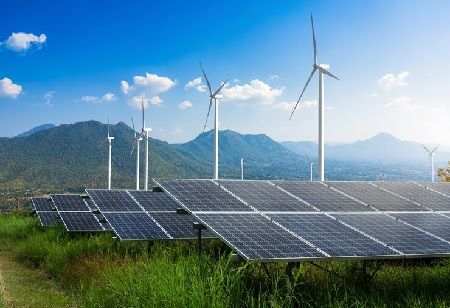
GST Cut to Save 1.5 Lakh Cr for Renewable Energy Investors
- GST on renewable equipment cut from 18% to 5%, saving Rs 1–1.5 lakh crore.
- Boosts 500 GW renewable goal; rooftop solar, solar pumps become cheaper.
- India surpasses 50% non-fossil fuel capacity, reaches 252 GW.
Union Minister for New & Renewable Energy Pralhad Joshi made an announcement stating that the reduction of GST on renewable energy devices from 18% to 5%, which will be effective from the first day of Navratri, will allow investors to save Rs 1–1.5 lakh crore by 2030, per The Economic Times.
Joshi formally announced this at the CII 6th International Energy Conference, where he mentioned Prime Minister Narendra Modi's influence in this decision, which greatly supports India in achieving its goal of having 500 GW of renewable energy by 2030.
The GST cut, passed by the GST Council, is anticipated to reduce costs for programs such as the PM Surya Ghar: Muft Bijli Yojana, resulting in a decrease of between Rs 9,000–10,500 per 3 kW rooftop solar system. Farmers taking part in the PM-KUSUM scheme will realize Rs 1,750 crore in savings on 10 lakh solar pumps. The Ministry of New & Renewable Energy has indicated that a total of Rs 1–1.5 lakh crore, in 2–3% cost reductions, will become available for the 300 GW capacity addition target by 2030.
Also Read: Govt Cuts GST on Solar, Wind Energy to Boost Green Adoption
Joshi also highlighted the progress India made at COP26 in 2021, recalling how Modi set the 500 GW non-fossil fuel target. “We’ve achieved over 50% of our installed power capacity from non-fossil sources, five years early, crossing 252 GW,” he said.
About 20 lakh homes benefited from the PM Surya Ghar scheme, and a recent auction in Madhya Pradesh acquired solar power with storage batteries at a record low of Rs 2.70 per unit. By 2030, the government now has a planned transmission system for 537 GW of renewable capacity, further solidifying India's global leadership in clean energy transition.

.jpg)